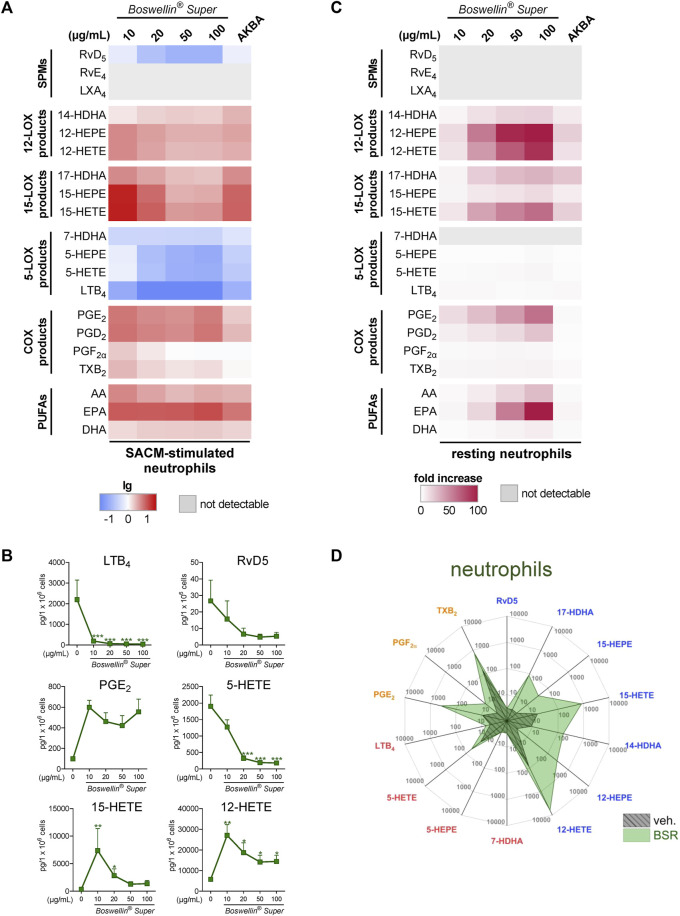FIGURE 3.
Impact of Boswellin® Super (BSR) on the modulation and induction of LM formation in human neutrophils. (A,B) 5 × 106 Human neutrophils/mL were pre-incubated with the indicated concentrations of BSR, AKBA (10 µM), or vehicle (0.2% ethanol) for 30 min and then stimulated with 1% SACM for 90 min at 37°C. Formed LM were isolated from the supernatants and analyzed by UPLC-MS/MS. (A) Heatmap showing the fold changes (logarithmic scale) in LM formation for BSR- or AKBA-versus vehicle-pretreated cells stimulated with 1% SACM, n = 3, separate donors. (B) Data are given as pg/5 × 106 cells, mean ± S.E.M., n = 3, separate donors. For statistical analysis, data were log-transformed, one-way analysis of variance (ANOVA) with Dunnett’s multiple comparison test, *p < 0.05, **p < 0.01, and ***p < 0.001 against vehicle. (C,D) 5 × 106 Human neutrophils/mL were incubated with the indicated concentrations of BSR, AKBA (10 µM), or vehicle (0.2% ethanol) for 180 min at 37°C. Formed LM were isolated from the supernatants by SPE and analyzed by UPLC-MS/MS. (C) Heatmap showing the fold increase in LM formation for BSR- or AKBA-versus vehicle-treated cells, n = 3, separate donors. (D) Radar plot showing selected LM (pg per 106 neutrophils) formed by cells after BSR (50 μg/mL) treatment compared to vehicle controls.

